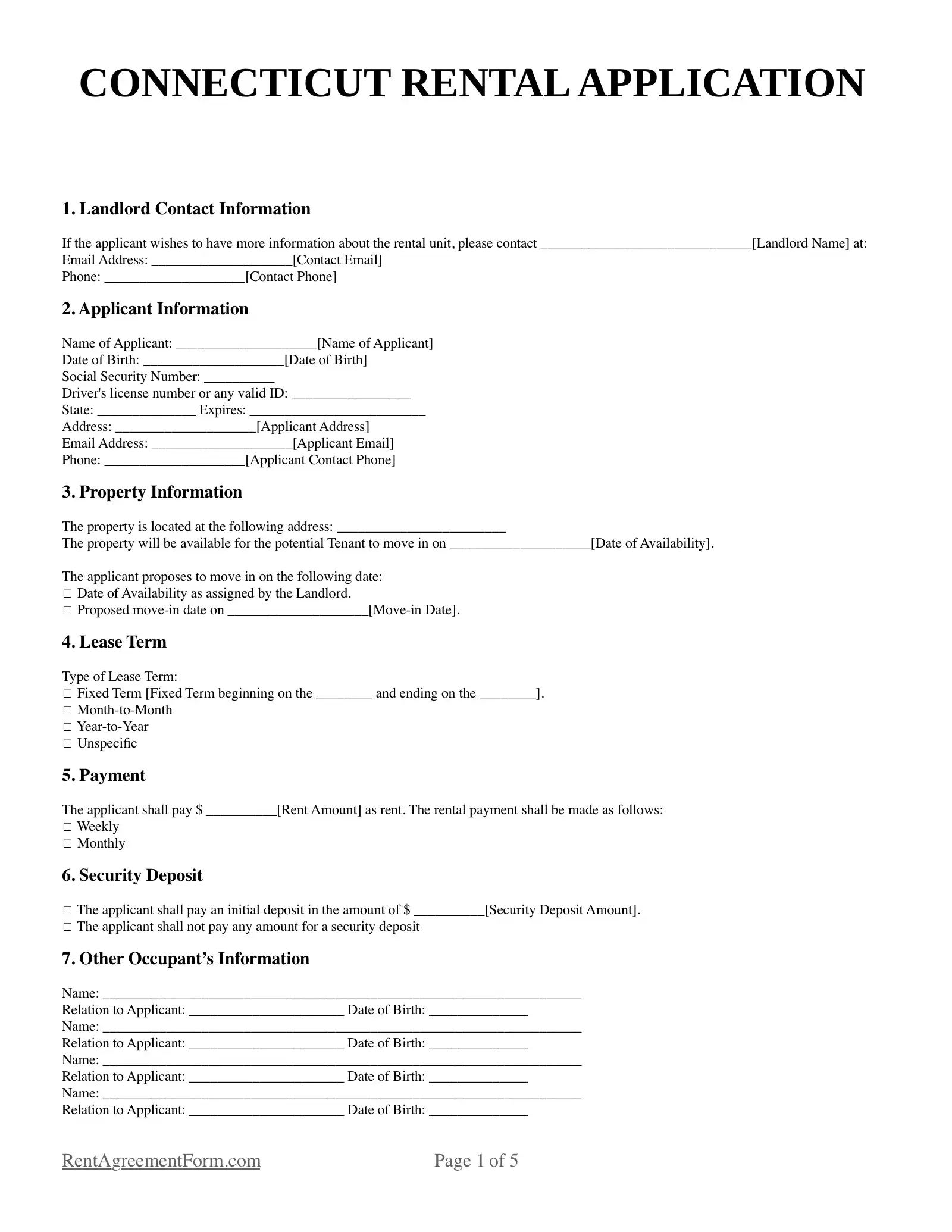Connecticut Rental Application Form
Connecticut ticks a lot of boxes for people looking for a great place to live — beautiful scenery, low crime rate, and highly rated schools, among others. If you’re looking to call Connecticut home and rent an apartment in the area, you’ll need to fill out a rental application form before signing a Connecticut lease agreement.
A Connecticut rental application form is a document that signifies a person’s interest in becoming a tenant of an apartment or rental unit. It also gives the landlord authorization to conduct a background check on the applicant to see if the person is ideal for tenancy.
What constitutes a background check? One of the most crucial things a landlord wants to know is the applicant’s credit rating, which provides an indication of the applicant’s financial habits and capacity to pay. Other aspects that would be of interest to a landlord are the tenant’s criminal history and eviction record if they have one.
The standard rental application form contains basic details such as the tenant’s name, address, phone number, social security number, and driver’s license. An applicant’s employment background and income are crucial too since they affect the potential tenant’s ability to pay rent monthly.

Rental Application Fee for Connecticut
A rental application form comes with a non-refundable rental application fee. No law in Connecticut specifies the maximum amount a landlord can charge as a rental application fee.
The amount is used to cover background and credit checks handled by agencies or computer software. The applicant will not get back the fee even if the application is rejected. However, the applicant has the right to ask for a copy of the background check and know the reason why they were rejected.
Every prospective tenant should know about the Federal Fair Housing Act, which prohibits discrimination against a person’s skin color, religion, gender, nation of origin, familial status, and disability.
Security Deposits in Connecticut Rental Applications
Connecticut landlords can collect two months’ worth of rent as security deposits from their tenants unless the tenant is at least 62 years old. For tenants who are 62 years old or older, the landlord should only collect one month’s worth of rent as a security deposit.
The security deposit has to be kept in an interest-bearing account and the landlord must give the interest to the tenant every year on the anniversary of their tenancy.
The security deposit is refundable, and the landlord has 30 days to return it to the tenant after they move out. Any damage to the property or unpaid rent can be deducted from the security deposit (CT Gen Stat § 47a-21).